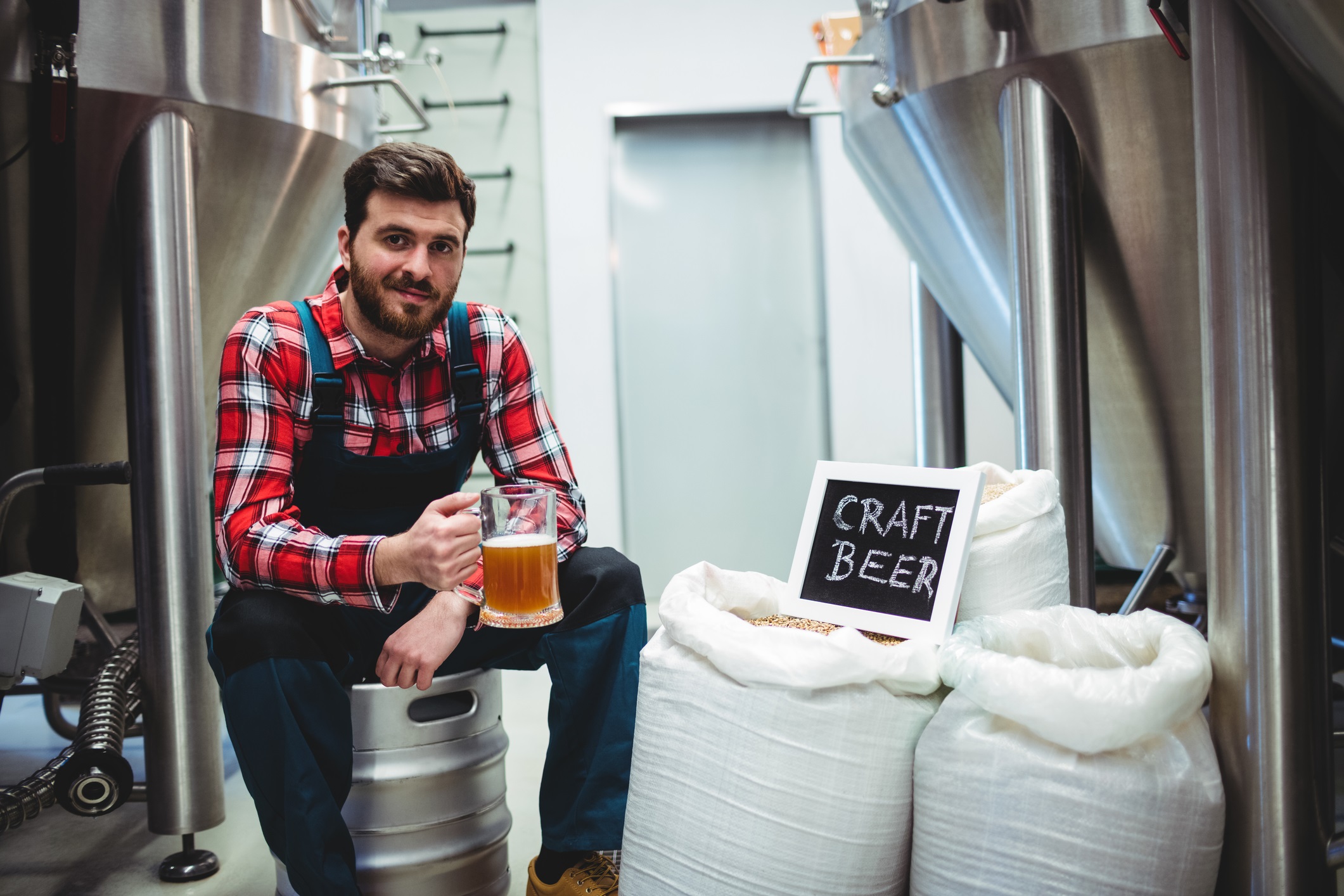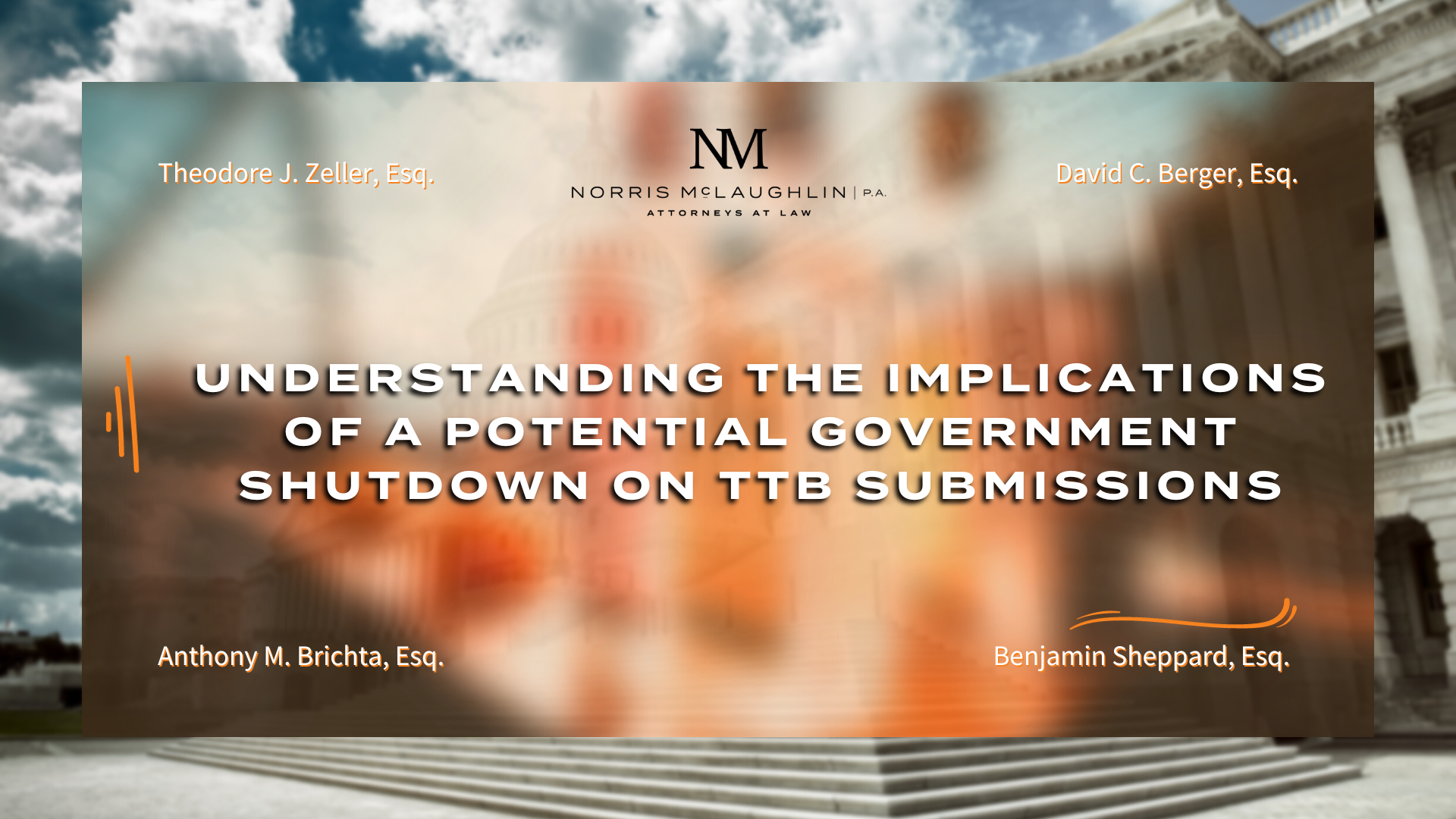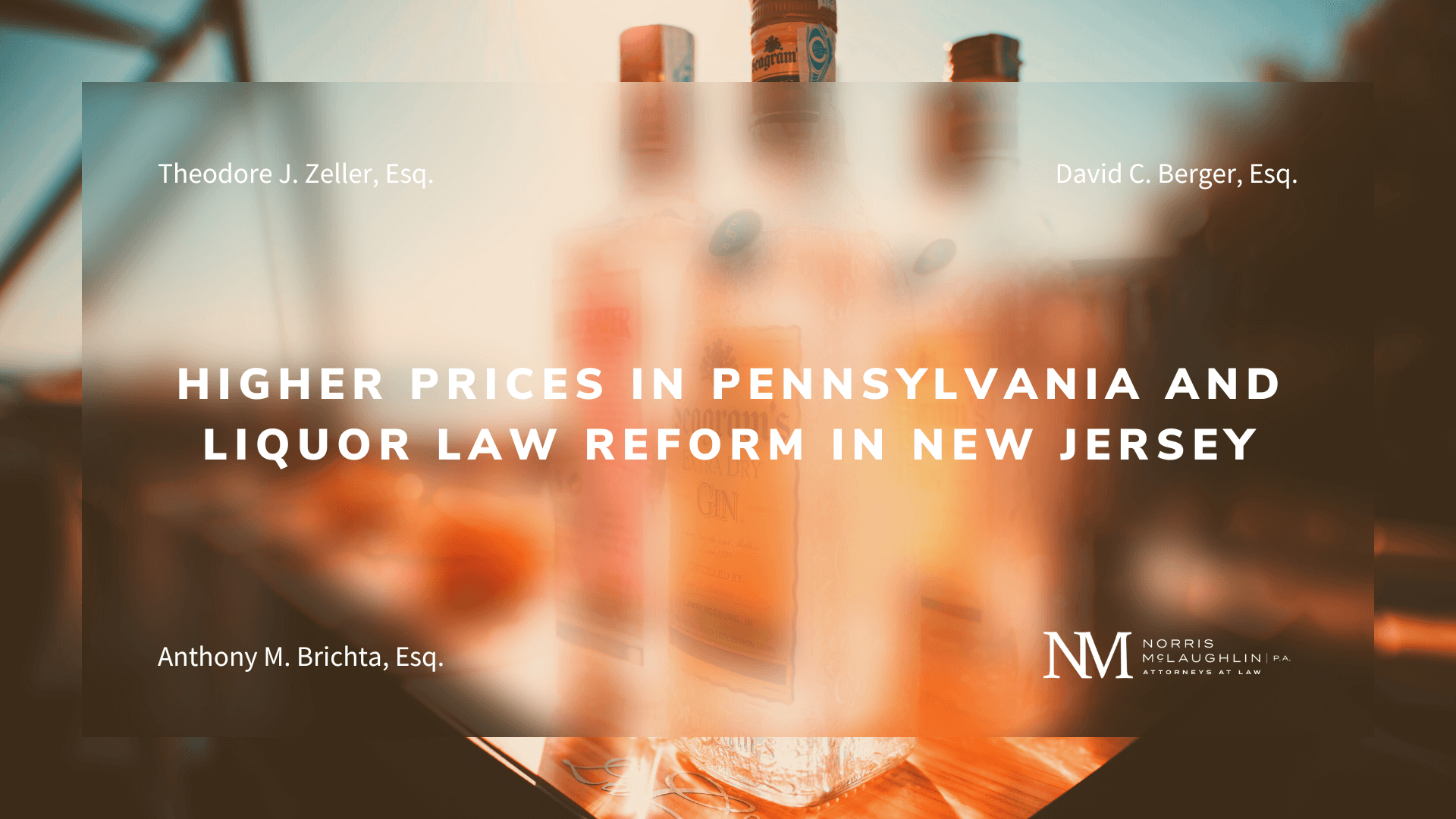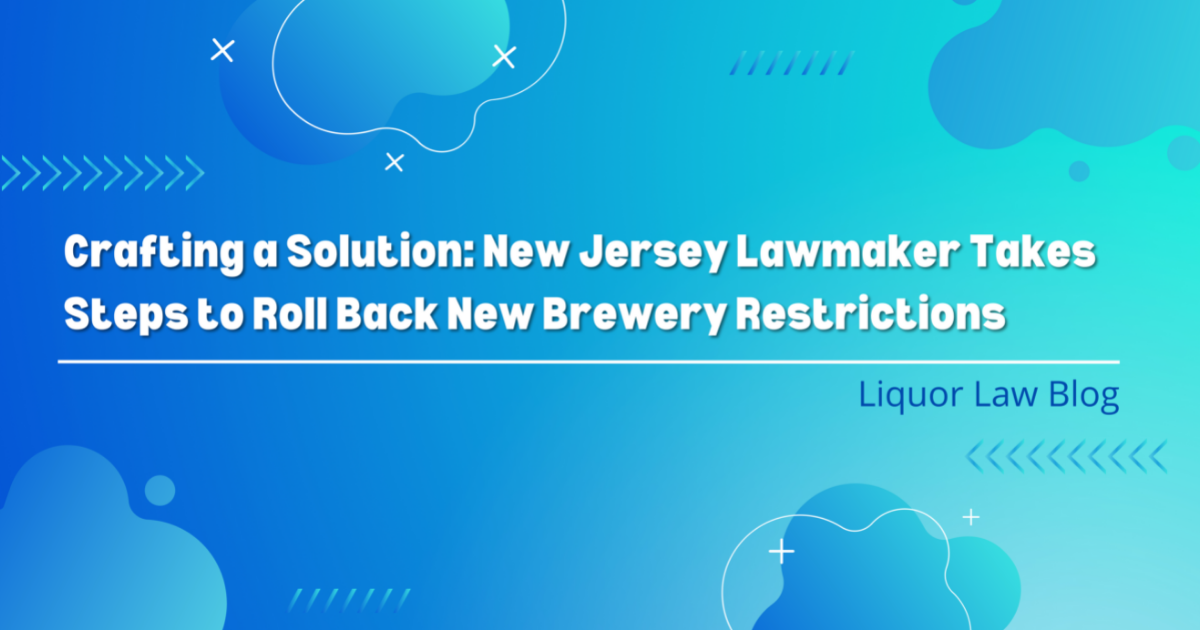New Jersey Division of Alcoholic Beverage Control Issues Special Ruling Clarifying Privileges for Craft Brewers – Part 1: Overview

Since the creation of the limited brewery license in New Jersey back in 2012, craft brewers have been waiting for guidance regarding what activities are permitted in their taprooms. With no regulations enacted, many brewers felt they were operating in a “gray” area, and that enforcement of what conduct was, and was not, permissible was inconsistent and subjective. On September 21, 2018, the Director of the New Jersey Division of Alcoholic Beverage Control (“ABC”) issued a Special Ruling Authorizing Certain Activities by Holders of Limited Brewery Licenses (“Special Ruling”) addressing many of the issues craft brewers faced with respect to their taprooms and direct to consumer sales, including, tours before on-site consumption, the use of music and TV in the taproom, offsite events (such as participation in beer festivals and civic events), serving food, and hosting private parties.
The Special Ruling states that the Director considered the concerns of the entire alcohol industry in New Jersey within the framework of the three-tier statutory scheme. In particular, the Special Ruling explains that New Jersey craft breweries have limited retail privileges, and that their taprooms are not the equivalent of a Class C plenary retail consumption license (your typical bar or restaurant). In short, the Director had to strike a balance between the need for craft breweries to grow and serve their client base vs. restaurants/bars who contend that they have paid six or seven figures for their licenses and now see craft breweries popping up down the block that are able to serve patrons on-site for a small license fee to the state, and are taking away business (in many ways this debate is similar to the taxi drivers vs. Uber, although in the craft beer space, there is much more opportunity for the opposing sides to work together and mutually benefit). The limitations placed on New Jersey craft breweries reminds the industry of the ABC’s position that craft breweries are first and foremost manufacturing/production facilities, and that on-site consumption and direct sales to consumers are an exception to the three-tier system. Retail licensees were concerned that the exception had swallowed the rule, and will welcome the new “regulations.” On the other hand, some craft brewers feel that the Special Ruling is discriminatory (since it does not apply to distilleries or wineries), and that it severely hamstrings their ability promote their brand. We have already seen one petition seeking that the Special Ruling be withdrawn. Regardless of where you stand on the issue, the Special Ruling will govern for the foreseeable future.
Although New Jersey’s landscape for craft brewers is still rather restrictive compared to most other states (including our neighbors in Pennsylvania and New York), the Special Ruling helps fill the gaps in the Limited Brewery statute. Whether you believe craft breweries are still “backdoor bars” or feel that the “one size fits all” approach does not work for all craft breweries in the state, the Special Ruling does offer some much needed clarity on operational issues. Stay tuned for Part 2, where we will discuss the details of what New Jersey craft brewers can, and cannot, do.
For information regarding national and state liquor law matters or general manufacturing and distribution advice, please contact our Liquor Law, Licensing, Manufacturing, and Distribution Practice Group: Liquor Law Department Chair Theodore J. Zeller III, Esquire (tzeller@norris-law.com); David C. Berger, Esquire (dberger@norris-law.com) for Pennsylvania and New Jersey retail and manufacturing licensing; or contact our offices at 610-391-1800.



